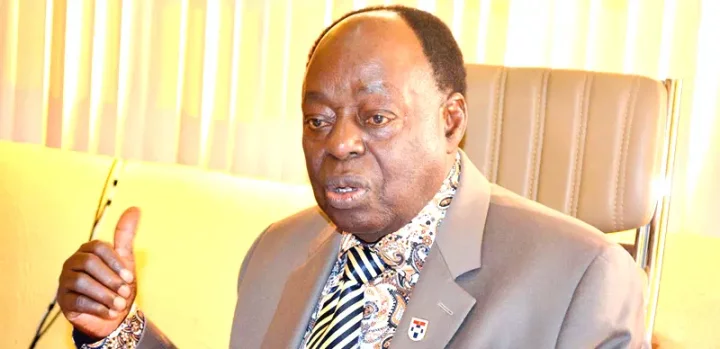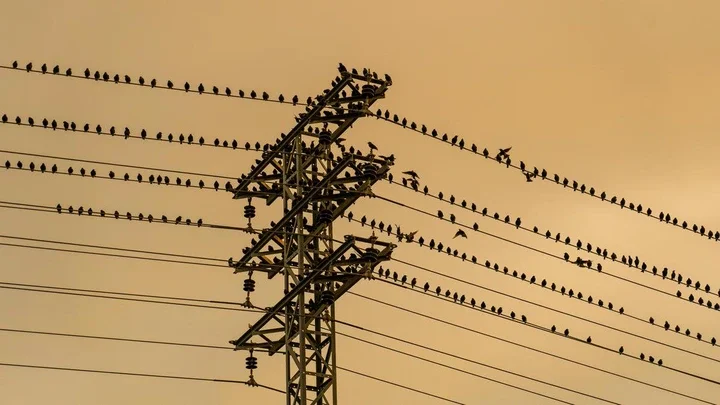
In the series on life after death from religious beliefs and practices, I have on the various beliefs around one of earth's greatest mysteries: "death and what happens thereafter".
I have shown you that most religions believe man has a soul and that the soul goes to the world of the dead for judgment based on the quality of life lived while they were here on earth. Some religions believe that the soul departs to a world of rest and not judgment. Yet again, some believe that the soul is rebirthed into this world as a human. Others believe that the body of rebirth is determined by the life lived while the person was on earth. In summary, most religions believe the quality of life led while a person is alive is so important it determines where the person's soul goes to.
The Atheist believe that religion was birthed to answer the question of what happens after death Atheists believe that humans have no soul, and that everything ends at death. To Atheists, death is a natural consequence of life. However, immortality on earth is still possible once the memory and legacy of the dead is left in the hearts of the living, in records accessible to the living or in the digital landscape of technology.
To complete the cycle, in this part of the series, I will consider briefly what science has to say about death and life after death.
Beliefs and Practices of Scientists on Life after Death
The biological process of dying occurs when brain activity and organ function ceases. During the dying process, the breathing will become irregular and sound like a rattle or a gurgle because such a person will not be able to swallow the secretions building up in their chests or throats. Organs of the body slow down and begin to shut down, every muscle in the body relaxes, the pupils dilate, the jaw may fall open and the skin sags. If a person has any urine or faeces in their body, these will be released too. Finally, all air in the lungs is released to the throat and vocal cords which may cause a moan or a sigh at the last breath.
The process of dying is not instantaneous like many believe, but may last for up to ten minutes.
From the time of death, the body undergoes series of changes the detail of which is not contemplated by this article. The question is what does science say happens to the souls (if there is anything like that) after death?
Researches on Near-Death Experiences
Survivors of near-death experiences have given some insights into what happens at the brink of death. In 1988, actress Jane Seymour went into anaphylactic shock. Though her body was shutting down, her mind stayed aware. As she recalled,
"I had the vision of seeing a white light and looking down and seeing myself in this bedroom with a nurse frantically trying to save my life and jabbing injections in me, and I'm calmly watching this whole thing."
Her description of the events that happened to her body was found to be true.
In 2014, Dr. Sam Parnia carried out a study on what happens to patients with near-death experiences. In his report, one of the patients recounted what happened in the hospital a full three minutes after his heart stopped. According to Dr. Sam,
"The man described everything that had happened in the room, but importantly, he heard two bleeps from a machine that makes a noise at three-minute intervals. So we could time how long the experience lasted for. He seemed very credible and everything that he said had happened to him had actually happened."
40 percent of the patients of Dr. Sam Parnia recalled having some sort of awareness when they had been declared clinically dead. Most of those with the near-death experiences described seeing a bright welcoming light. Finally, many of them remembered not wanting to return to their earthly bodies.
In 1907, Duncan MacDougall, a Physician from Haverhill Massachusetts hypothesized that souls have physical weight. He therefore attempted to measure the mass lost by a human when the soul departs the body. He found that every cadaver lost a weight of three-fourths of an ounce i.e. 21.3 grams after the souls have departed.
The scientifical thoughts that believe in the existence of life after death is referred to as Physicalism. However, there are other schools of thoughts that oppose this view.
Many scientists remain sceptical about these reports supporting the possibility of life after death. They attributed the Near-Death visions to lucid dreaming due to rapid eye movement and to lack of oxygen in the brain. To scientists who belong to this school of thoughts, what exists after death is eternal nothingness. This aligns with the core beliefs of Atheism as discussed in the last article.
No living thing wants to die
In May 1960, during the Cold War, an American U-2 "Dragon Lady" spy plane was shot down over Russia while it was on a high-altitude reconnaissance flight to spy out Russia's suspected missile sites. The spy mission was a CIA top-secret mission which was sanctioned by President Dwight D. Eisenhower, the then president of America. The pilot, Gary Powers, had been given a suicide device, a poison-laced injection pin hidden in a dollar coin suspended around his neck. He was to use this suicide device to evade capture, hence the American president never imagined that a live pilot could be captured from the spy mission. However, the reality was different in the mind of parachuting pilot whose plane had collided with an exploded Soviet SA-2 missile at an altitude of 70,000 feet. He stated that while his plane spun out of control in an upside-down position with nose pointing at the sky, he mauled over the idea to use to pin around his neck. In his journal, Gary stated that it was "more or less up to me whether to use" the suicide pin "in case I was captured, [and] would rather be dead". It will appear that Gary preferred an agonising torture if found to a quick and painless death.
This short story of Gary Powers reveals a powerful reality of the universe: "no living thing wants to die".
My Deductions
My studies and experiences have led me to the conclusion that death is not just an end to life on earth, it is a part of the cycle of life. Everyone will taste death in the end and every second draws one closer to death. However, it is in human nature not to accept this reality of death. Humans generally loath the idea of something beyond their control, hence there have been various researches into the possibility of longevity, regeneration of human cells hence the reversal of aging and the preservation of human consciousness in machines and artificial intelligence.
Whether there is life after death or not, most beliefs and practices have point to the importance of life here on earth. If there is a life after death, the destination of the soul is determined the quality of life lived here on earth. The greater the good, the greater the possibility of a good reward in the life after death. If there is no life after death, you have the possibility to be immortalised through your good deeds of great impacts here on earth. I believe that great names of fallen heroes such as Dr. Martin Luther King, Kwame Nkrumah of Ghana, Nelson Mandela, Harriet Tubman, Malcolm X, Odudua, Bayajidda, Chief Obafemi Awolowo et cetera resonates with this conclusion.
I therefore charge my readers that you should refuse to merely exist as men and women in a particular time in history. Rather, strive to live a life of impact. Think of an idea that will change the world when it happens and then put it into action. By this, you will change the world, at least, the world around you through the good you do to and for others. If you live a good life on earth, then you will live above the fear of death and the life after death. Thus, living a good life of positive impact on others is the only way to face the inevitable without fear whether there is life after death or otherwise.
To this end, I submit that there is life after death. This reality lives in your deed here on earth whether it is good or bad. I would rather accept immortality due to good deeds. The question is: Would you?

















Comments